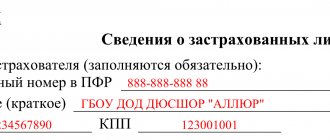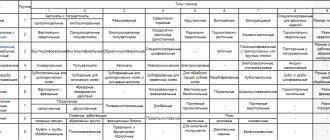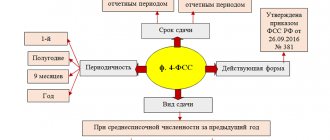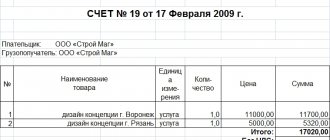Despite the fact that today it is possible to contact another division of the company or another enterprise via the Internet or by telephone, employers have to send employees on business trips. Often, the help of a highly qualified specialist is required not only at the main place of work, but also in other branches and divisions of the company. The purposes of travel may involve a short-term or long-term stay on a business trip. Previously, the duration of a business trip was strictly limited by law, but today the maximum duration of a business trip is not regulated.
Duration of the trip.
From the day the employee leaves for the destination to perform work tasks, and until the day he returns back, the period of his stay on a business trip runs. During this entire period, he retains his job and average salary. And the employer is obliged to reimburse him for all expenses associated with the trip, including payment for tickets (round trip), accommodation in a hotel or rented apartment, food and other expenses that the employee was forced to incur to complete the tasks set by the employer.
An employee may be away from his place of work for one day or for a longer period of time.
The legislative framework
Separate articles of Chapter 24 of the Labor Code of the Russian Federation are devoted to business trips:
- The concept is defined in the Labor Code of the Russian Federation - Art. 166.
- Guarantees for employees – Art. 167, art. 168.
The procedure for sending employees on a business trip is regulated by Government Decree No. 749, adopted on October 16. 2008
The need for daily standardization of working time and its reflection in timesheets is established in Letter of the Ministry of Labor of the Russian Federation 14-2-291 dated February 14, 2013.
The procedure for paying an advance must comply with the regulations of the Central Bank of the Russian Federation on cash transactions, adopted on October 12, 2011.
Maximum period of stay on a business trip.
At the same time, the law does not prohibit setting the maximum duration of an employee’s stay on a business trip in his employment contract, in a collective agreement or local regulations. For example, by agreement with the employee, the employer may include in the employment contract a condition that the duration of the employee’s business trip cannot exceed 10 days. This condition will apply to that specific employee. If this condition is specified in the local act, then it will apply to all employees of the organization.
It might be interesting!
What to do when you were illegally fired from your job, where to go?
Common mistakes
Error: The employer, when calculating the duration of a business trip, did not take into account weekends.
Comment: Weekends are necessarily taken into account in the duration of a business trip. Even if an employee does not work on a day off, he is entitled to be paid a daily allowance.
Error: The employer set the duration of the business trip to 1 year, since this is the maximum period for which the law allows a construction worker to be sent on a business trip.
Comment: Current legislation does not establish a maximum duration of a business trip - it can be any, depending on the complexity of the tasks assigned to the employee.
Is there a maximum travel period for certain groups of employees?
Some groups of employees require certain guarantees, including for medical reasons. In this regard, the question arises whether a maximum period for sending on a business trip has been established for such employees.
Natalia
Labor expert
The law does not provide for maximum terms either for employees of the organization as a whole or for individual groups of employees. At the same time, the Labor Code establishes a list of employees whose sending on business trips is prohibited.
These employees include:
- Employees under 18 years of age;
- Pregnant employees;
- Women with small children (under 3 years old), if they do not agree to travel or cannot do so for medical reasons;
- Foreigners who temporarily live or stay in the country;
- Disabled people;
- Employees who are highly qualified specialists (subject to certain conditions);
- Employees who have entered into an apprenticeship agreement with their employer.
Moreover, during the election period, it is prohibited to send employees registered as candidates to the elective body on business trips.
Some employees may be sent on trips only with their written consent.
Written consent of employees
Some employees can only be sent on business trips with their written consent. Moreover, travel should not be prohibited for them for medical reasons. These categories of personnel include:
- women with children under three years of age;
- single parents raising children under five years of age;
- employees who have disabled children;
- employees who care for sick relatives in accordance with a medical report.
Before sending these employees on business trips, they must be notified in writing of the right to refuse.
This procedure is established in Article 259 of the Labor Code of the Russian Federation.
Consent to a business trip can be issued in the form of an application.
Attention: failure to comply with the rules for sending employees on business trips is a violation of labor laws.
For such a violation, the labor inspectorate may fine:
- officials of the organization (manager) - from 1000 to 5000 rubles. (repeated violation entails a fine of 10,000 to 20,000 rubles or disqualification for a period of one to three years);
- entrepreneurs - from 1000 to 5000 rubles. (repeated violation entails a fine of 10,000 to 20,000 rubles);
- organization – from 30,000 to 50,000 rubles. (repeated violation entails a fine of 50,000 to 70,000 rubles).
Such measures of liability are provided for in parts 1 and 4 of Article 5.27 of the Code of the Russian Federation on Administrative Offenses.
What is the maximum length of stay for an employee on a business trip?
The duration of an employee’s business trip is determined by the head of the organization, taking into account the volume, complexity and other features of the official assignment (clause 4 of the regulation approved by Decree of the Government of the Russian Federation of October 13, 2008 No. 749). This rule applies both for business trips within Russia and for business trips abroad (clause 1 of the regulation approved by Decree of the Government of the Russian Federation of October 13, 2008 No. 749).
Although this is not stipulated by law, there are two travel periods: planned and actual.
The planned period is the expected dates of the business trip, which are reflected in the business trip order (clause 3 of the regulations approved by Decree of the Government of the Russian Federation of October 13, 2008 No. 749). The order is drawn up before the person leaves on a business trip. The manager also signs the document before sending the employee on a trip. Therefore, these dates are indicative only.
In practice, a business trip may drag on or even, on the contrary, end prematurely. This can happen for various reasons: the employee was delayed on the way, got sick, or, for example, completed a work task ahead of schedule. In any case, this shifts the actual dates of the trip relative to the planned ones.
As a general rule, the actual duration of a business trip is determined by the travel documents that the employee must present after returning from the business trip. A slightly different procedure applies if the employee went on a business trip in his personal transport. Then, upon his return, he must draw up a memo, indicate in it the actual dates of the business trip and attach supporting documents to it (waybills, hotel bills, etc.).
This is stated in paragraph 7 of the regulation approved by Decree of the Government of the Russian Federation of October 13, 2008 No. 749.
Let's say an employee does not have travel documents. For example, he lost them or there were no tickets initially (this is possible if the person traveled by passing transport). In this case, two options are possible.
The person has documents confirming his stay from the hotel
When traveling on business in Russia, the hotel is required to issue a cash receipt or a strict reporting form when paying for accommodation. Accordingly, determine the duration of the business trip on the basis of such a check (or BSO) and an agreement for the provision of hotel services at the place of business trip. After all, the contract must contain information about the period of residence. This follows from paragraphs 20 and 28 of the Rules, approved by Decree of the Government of the Russian Federation of October 9, 2015 No. 1085.
What if we are talking about a business trip abroad? Then the living expenses will be confirmed by the invoice issued by foreign hotels. If the invoice does not contain information about the length of stay, you will also need an agreement or other document (for example, a reservation application) with the necessary data. All primary documents in a foreign language must be translated into Russian (letter of the Ministry of Finance of Russia dated April 20, 2012 No. 03-03-06/1/202).
For more information about document translation, see Documents are written in a foreign language.
The person does not have any documents (neither travel nor residence)
Then the employee returning from a business trip must write a memo. He attaches to it a document in which the receiving organization confirms that he was at the place of business trip.
In both of the above cases, it turns out that living expenses are confirmed and need to be reimbursed. Also for these days there is a daily allowance. But travel expenses and daily allowances for days on the road do not need to be reimbursed. This follows from paragraph 7 of the Regulations, approved by Decree of the Government of the Russian Federation of October 13, 2008 No. 749.
By the way, since the employee does not have tickets, the advance payment for the business trip in terms of travel expenses and daily allowance for the days on the road can be withheld from the salary. Article 137 of the Labor Code of the Russian Federation allows you to do this.
Situation: are there maximum deadlines for business trips? Is a Russian citizen sent on a business trip?
The legislation does not provide for restrictions on the duration of business trips. Its duration is determined by the head of the organization, taking into account the volume, complexity and other features of the official assignment.
Neither Article 166 of the Labor Code of the Russian Federation, nor the provisions approved by Decree of the Government of the Russian Federation of October 13, 2008 No. 749 contain any restrictions on the duration of business trips (both within Russia and abroad).
The maximum terms were provided for by Instruction of the USSR Ministry of Finance, the USSR State Committee for Labor and the All-Russian Central Council of Trade Unions dated April 7, 1988 No. 62. According to this document, the duration of a business trip within the territory of Russia should not exceed 40 days, not counting the time spent en route. And for employees sent to perform installation, commissioning and construction work, such a period should not exceed one year (clause 4 of the Instruction of the USSR Ministry of Finance, the USSR State Committee for Labor and the All-Russian Central Council of Trade Unions dated April 7, 1988 No. 62). Controlling agencies ordered compliance with these restrictions when traveling abroad (letters from the Ministry of Finance of Russia dated September 28, 2007 No. 03-04-06-01/335, dated October 28, 2005 No. 03-05-01-04/345 and dated October 19 2005 No. 03-05-01-04/319). Currently, there are new rules governing the procedure for sending employees on business trips (regulations approved by Decree of the Government of the Russian Federation of October 13, 2008 No. 749). Therefore, there is no reason to apply the Instruction of the Ministry of Finance of the USSR, the State Committee for Labor of the USSR and the All-Russian Central Council of Trade Unions dated April 7, 1988 No. 62.
Thus, the duration of an employee’s business trip is determined by the head of the organization, taking into account the volume, complexity and other features of the official assignment (clause 4 of the regulation approved by Decree of the Government of the Russian Federation of October 13, 2008 No. 749).
This conclusion is confirmed by the letter of the Ministry of Finance of Russia dated April 28, 2010 No. 03-03-06/1/304.
It should be noted that if an employee spends most of his working time outside Russia and performs the bulk of his work duties there, then his actual place of work is recognized as a foreign state. Such an employee cannot be considered to be on a business trip. This is due to the fact that one of the main signs of a business trip is the employee’s fulfillment of a separate order from the employer outside the place of his permanent work (Part 1 of Article 166 of the Labor Code of the Russian Federation). As for payments made in favor of such an employee to fulfill an order, they should be regarded as remuneration for the performance of work duties. Such clarifications are given in the letter of the Ministry of Finance of Russia dated April 28, 2010 No. 03-03-06/1/304.
How is the duration of the trip determined?
The head of the organization or other authorized person has the right to determine the duration of the employee’s trip based on what goals of the trip are set for him and what tasks he must solve.
The duration of the trip must be determined in advance, before the employee leaves for the destination, since the employer is obliged to calculate and pay him an advance.
If during an employee’s trip there is a delay in transport, or for reasons beyond the employee’s control the resolution of work issues is delayed, the period of the work trip is extended. In this case, management is obliged to either increase payments to the employee or provide him with additional days off.
It might be interesting!
What to do when the Employer does not want to formalize it?
Duration of business trip
Its period includes weekends and holidays, which must be paid double. An employee has the right to receive payment for work on a day off (holiday) in the usual amount, but then the employer must provide him with another day of rest.
Travel times are subject to change. To extend or shorten the travel period, the employer must issue a written order.
The order is drawn up using templates (form T9 or T9A) or the employer’s enterprise develops its own sample form. Early recall from a business trip is also carried out by order of the head of the company.
Can a business trip be indefinite?
Despite the fact that the law does not limit the duration of business trips, they cannot be indefinite. This conclusion can be drawn from Art. 166 of the Labor Code of the Russian Federation, which contains the concept of a business trip and indicates that the duration of the trip must be certain.
However, in practice, there are cases when a seconded employee, after the end of his official trip, remains to work in a separate division of the enterprise to which he was sent to resolve certain tasks. In this case, by agreement between him and the management of the organization, the transfer of the employee to permanent work in this separate unit can be arranged.
How to make changes to the duration of a booked business trip
In life, it is impossible to predict how events will unfold.
It happens that having sent an employee on a business trip, the need to achieve its goal simply disappears, or the employee completed the assigned task ahead of schedule.
The manager needs to recall the employee from a business trip.
It is logical that for this purpose an appropriate order is created, adjusting the timing of the business trip with justification of the reasons for their change.
Moreover, neither in the Labor Code, nor in Regulation No. 749, the legislator does not focus attention on this point and does not provide certain requirements for the preparation of documentation, unified forms.
Therefore, the employer has the right to issue a written order in any form or developed for such situations in the organization.
You can inform the posted worker that the period of his stay on official assignment has been changed by all available means: in a telephone conversation, sending a scanned copy of the order by e-mail, and others.
Upon return, the employee must personally familiarize himself with the original order.
Maximum period for sending abroad.
An employee’s long trip abroad carries certain risks of changing his status from resident to non-resident. But, despite this, the law does not limit the duration of such trips in any way, which means they can be determined by the employer independently.
Natalia
Labor expert
It is important to know! The employer is obliged to pay the employee additional expenses associated with traveling abroad, including the cost of obtaining a foreign passport and obtaining a visa, if the employee does not have these documents.
How to draw up a regulation on business trips
At the legislative level, basic provisions are defined that an employer must follow in the process of arranging business trips for its employees. In practice, there are many features and nuances. To honor them, it is necessary to develop a local document on how registration, confirmation, accounting, and payment of travel expenses will be carried out. Some organizational aspects should also be reflected here.
Question No. 7: Do I have to pay per diem and pay for a hotel if a posted worker gets sick?
Answer: yes, it is necessary.
This point is also directly regulated in regulatory documents. Thus, paragraph 25 of the Business Travel Regulations states that an employee who falls ill during a business trip is required to reimburse the costs of renting accommodation and pay daily allowance for the entire time he is unable to perform work or return to his place of residence due to illness.
And paragraph 16 of the Instructions on Business Travel resolves the issue of extending a business trip during illness. Moreover, the solution is quite simple - sick days are simply not included in the travel period indicated on the travel certificate.
Question #3: Can a business trip last one day?
Answer: yes, it can.
In fact, in the Labor Code and in the Regulations on Business Travel, the issue of the minimum duration of a business trip is delicately avoided. Only paragraph 2 of the old, still Soviet Instructions on Business Travel** states that a travel certificate may not be issued if the employee must return from a business trip on the same day on which he was sent. It indirectly follows from this that the business trip can be one day. However, as already mentioned, later legislation (the Labor Code of the Russian Federation and the Regulations on Business Travel) does not contain such a clause. But these acts also do not contain a ban on one-day business trips.
From all this, only one conclusion can be drawn - one-day business trips are not prohibited, but it is better to prepare documents for them, as they say, in full (travel certificate and report). This will not be superfluous for tax purposes either. Please note that daily allowance for a one-day business trip is paid only when traveling abroad, and even then in the amount of 50 percent of the standard. For domestic “one-day” trips, daily allowances are not paid (clauses 11 and 20 of the Regulations on Business Travel).
Question No. 5: How to determine the departure day if the plane departs at the beginning of the first night?
Answer: The day of departure will be the day before the day of departure of the aircraft.
This is due to the fact that, according to paragraph 4 of the Regulations on Business Travel, when determining the day of departure, it is necessary to take into account the time required to travel to the station, pier or airport, if these objects are located outside the boundaries of the populated area. Since airports are almost always located outside the city, the day of departure will be the day when the employee begins his movement towards the airport.
Please note that in this case the departure day will not coincide with the date indicated on the air ticket. Therefore, it is better to ask the employee to save and submit to the accounting department also the transport ticket with which he got to the airport.









